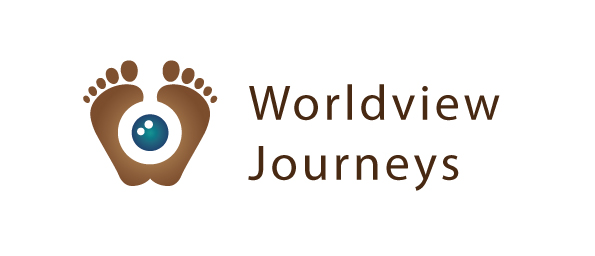Are you also looking at what’s happening in our world with amazement sometimes, wondering if we’ve fallen under a spell? As the US election has made clear, the polarization of perspectives in society is growing more and more extreme. These days, we’re not even relating to the same reality anymore. We don’t just have different views, we live in entirely different worlds!
Polarization and the alternate realities we’re living in
And that’s a big deal. As long as we can’t even agree on what’s real, we can’t navigate ourselves out of ANY of our problems. To some degree, having different worldviews has always made us live in, and enact, different worlds. What’s true in one worldview may not be true in another worldview.
What’s different today though is that our views are not as much ‘reality-checked’ by the facts of our world anymore. Living through our devices, and hanging out on social media, we increasingly engage with ‘reality’ as constructed by algorithms. Importantly, these algorithms don’t feed us what’s true or relevant, but what’s most effective at keeping us on these platforms. That’s, after all, their business model.* (And yuck, they use our data to exploit our psychological weaknesses to addict us.)
It’s a system that’s biased towards false information, for the simple reason that false information makes more money than the truth does. The truth is, well, boring. (A good source to learn more about how these social media platforms operate, and why they’re designed that way is the documentary The Social Dilemma.)
The result is that we now live in completely alternate realities. Social media thus amplify conflicts inherent to a society where multiple worldviews co-exist, as worldviews offer different perspectives on what’s true and valuable. However, in our digital ‘disinformation age’, and without the reality-check of the real world, our views are starting to spin out of control, with detrimental consequences.
The need for worldview intelligence
Simultaneously, it’s bringing to light what this time may be asking from us, perhaps pointing us towards a next step in our collective evolution. We seem to be asked to learn to hold our perspectives lightly ~ rather than fanatically identifying with them. To respond with curiosity to other perspectives ~ rather than reacting and defending. And to explore the deeper layers and origins of these differences, i.e., our underlying worldviews ~ rather than bickering about the ‘facts’.
This ability is what organizational consultants Kathy Jourdain and Jerry Nagel refer to as worldview intelligence. After working with worldviews for almost a decade, they’ve written an interesting book about how you can train your worldview intelligence, and use this skill to your benefit in organizational and communal contexts.
As these authors argue, worldview intelligence empowers us to harvest collective wisdom and leverage diversity for innovation, without getting stuck in divisions. It helps us get to the heart of our issues and systems, instead of being misled by surface events. And because of the invitation to explore, it actually helps us build trust and relationship. Looking at our deeply divided world today, it seems there are few skills that are more needed at this time!
In our next worldview café, we’ll get deeper into this theme. Kathy and Jerry will be there to tell us a bit more on how we can enhance our worldview intelligence, and as always we’ll ask ourselves potent questions and engage in dynamic dialogues. Come on in and join us, we’re looking forward to hang out with you!
~~~
* With respect to these platforms’ business model: We often don’t think about this, but as social media users we’re not the customers ~ we’re what’s being sold! The advertisers are the customers. They buy our attention; they buy us looking at their ads. In the words of technology philosopher Jaron Lanier, “it’s the gradual, slight, imperceptible change in your own behavior and perception that’s the product. Changing what you do, how you think, who you are.” Others refer to the attention-extraction model, describing an economy based on ‘the mining of your attention.’
